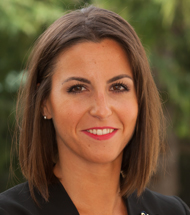Families devote a average of 70 hours a week to caring for their relatives with Alzheimer's disease.
A study of the School of Nursing points out the role core topic of family care and the absence of support to cope with this disease.

PHOTO: Manuel Castells
Families are the ones who assume most of the expense and dedication in the care of people with Alzheimer's disease. In fact, they invest a average of 70 hours per week, which means a total of 286 hours per month. However, despite being considered the "centralpartner " in the care of people with this disease, in most cases they face this status alone. This was emphasized by Nuria Esandi, professor at the School Nursing School, during the XXIV conference on Alzheimer's Disease organized by the association de Familiares de Enfermos de Alzheimer de Navarra (AFAN).
As the expert pointed out, "even today there are still limitations in services when it comes to dealing with Alzheimer's disease and family care". These include "reactive and fragmented care from an almost exclusively biomedical approach , care focused on the urgent solution of problems instead of strengthening the resources of each family, or the lack of continuity and adaptation to the stages of the care process, among other issues".
"At final, there is a B absence of services aimed at the affected person and his or her family simultaneously, that is, focused on the family unit." According to the study, from the onset of the disease the family functions to preserve the family balance in its new role as 'caregiver', however, "crises that jeopardize that balance happen continuously".
Therefore, what families demand are not immediate solutions but support to move forward with care and live sustainably with dementia. In this sense, the challenge for professionals, especially nurses, lies in helping families to preserve their identity and continue their own vital project by promoting autonomy and decision making from the onset of the disease. "It is about encouraging them to be resourceful in the face of persistent crises and stresses so that they can constitute themselves as a 'sustainable family caregiver' capable of reacting to future challenges in a manager and independent manner."
